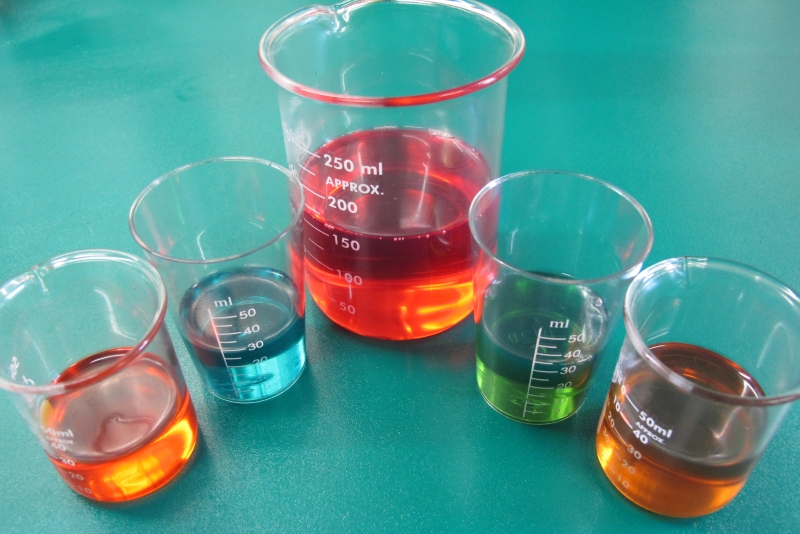You have no items in your shopping cart.
Suspension Fluids - Part 3 - Mineral vs Synthetic Oils
 We've recently been through fluid viscosity and also the different fluid types required for lubrication vs damping. Now it's all about Mineral vs Synthetics.
We've recently been through fluid viscosity and also the different fluid types required for lubrication vs damping. Now it's all about Mineral vs Synthetics.
Well first we have to delve into the messy business of what actually is a mineral oil and what is a synthetic. It's not clear cut as all oils are highly processed. The API (American Petroleum Institute) grades motor oils into 5 classes from lightly refined to fully genetically engineered synthetics. Kew Engineering in the UK have reproduced that table here. Suspension Fluids cover this same range.
Hydraulic Oils
At the low end we have simple hydraulic oils that are only refined enough to get to the viscosity range they should be. These oils have a mix of big and small molecules which means they thicken up early in the cold and thin out quickly when things get hot.
Viscosity Index (VI) of 100 or less means it's a cheap mineral oil that will work for basic applications but is better for a hydraulic jack than suspension. Some of these won't even pour out the bottle at -18ºC! Performance is average but they generally work. Even big name brands have expensive oils in this low range. So buy carefully. We don't supply these oils.
Mid-High End Mineral Oils
In the middle of the viscosity index (200-380) we have highly refined mineral oils. These are highly refined, processed and hydro-cracked until the molecule sizes are consistent. The consistent size molecules mean the viscosity is quite stable with temperature changes, so they don't thicken up as much in the cold and they don't thin out as much when working hard and getting hot.
Viscosity Index of 200-380 generally means it's a high class mineral oil (Motorex etc). Check pour point too as good 15 cSt oils will still pour below -60ºC and thicker oils below -40ºC. Our Motorex suspension oils are in this category. They have excellent low temperature performance (Motorex 15cSt 2.5wt will still pour below -60ºC) are still very slippery and perform well at higher temperatures.
Fully Synthetics
At the top end of the viscosity index we have the fully synthetics made from a long list of synthetic polymers that you'll struggle to pronounce. These are generally the fluids that take high heat the best. But they don't handle cold that well. Many also aren't slippery as a trade-off between lubrication and high heat existed. But this has been largely overcome recently.
VI can be as high as 500, which makes them ideal for very hot rear shocks (100ºC+). But in the cold they start rapidly increasing viscosity sooner and won't pour out the bottle around -30 to -40ºC. Motorex don't currently have a very high VI fluid suitable for rear shocks, but we can certainly help if that is what you require.
So What Should You Use for Bike Suspension?
Highly refined mineral oils, like our Motorex, are the go for open bath forks, cartridge fork dampers and rear shocks for all but the hardest riders. If you start cooking rear shocks then call us and we'll find you a suitable synthetic. For lube oil, use Supergliss if it's less than 40 cc per side. If it's over 40 cc you'll get the same result at a lower cost with Motorex Fully Synthetic.
Written by Dougal
December 2016
You may also be interested in our range of Technical Articles & Resources, written to help with your bike maintenance.







